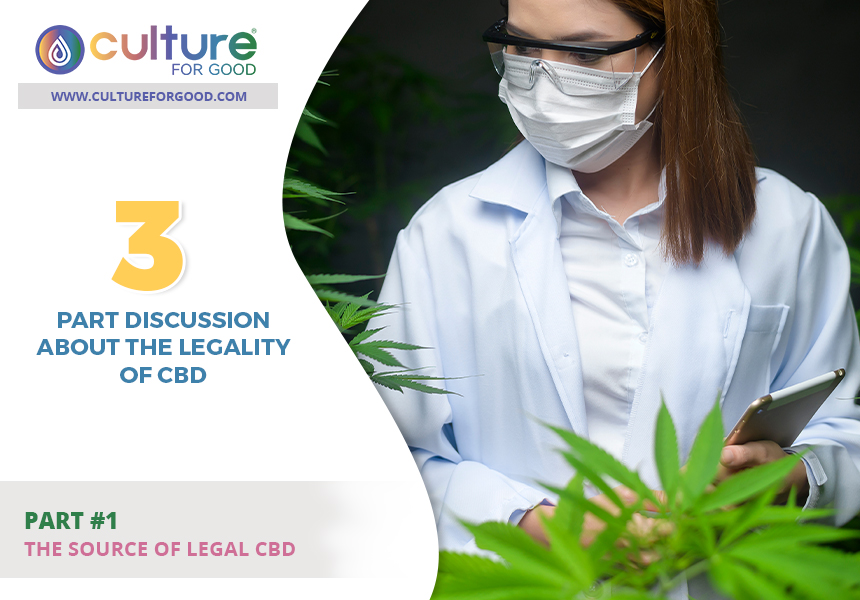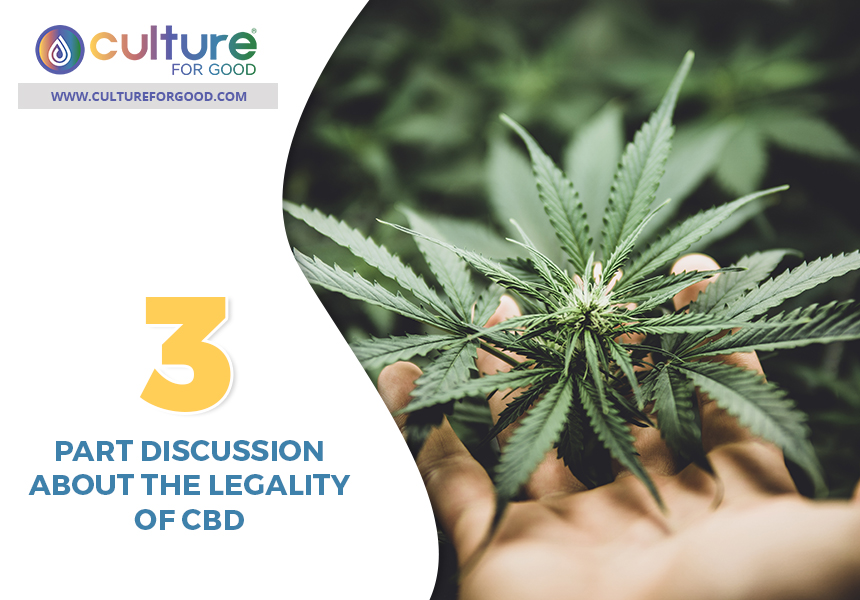To put it simply, hemp is legal across the United States under the 2018 Farm Bill¹. However, due to very strict regulations, there remains much confusion surrounding the legal status of CBD.
A quick look at these regulations reveals many unclear laws. Even more so, due to all the misinformation, lawmakers aren’t even entirely sure what’s legal and what isn’t.
To top it off, each state doesn’t follow the same regulations set on a federal level. This is comparable to marijuana. Though it remains an illegal Schedule I substance, individual states have the right to legalize it. Hemp is facing a similar situation, only it’s reversed. Even though it’s legal on a federal level, individual states are maintaining their right to keep prohibited.
Due to this predicament, there are many out there who have questions surrounding CBD’s legal status. The purpose of this blog is to provide you with a better understanding of these laws.

1The Source Of Legal CBD
As mentioned, CBD is legal on a federal level. However, that CBD must be derived from hemp, not marijuana.
Hemp and marijuana are both related to the cannabis plant and both produce CBD. However, the main active chemical in marijuana, THC, remains illegal on a federal level. Since hemp only contains a small fraction of THC (less than 0.3%), CBD products must get their cannabidiol from this source.
It should be noted, in states where marijuana is legal, marijuana-derived CBD is also legal. Still, each state has their own regulations surrounding this too.

2Hemp’s Further Regulations
When President Trump passed the 2018 Farm Bill, it removed hemp as a Schedule I substance.
But CBD in and of itself remains a Schedule I substance and, in effect, is illegal. However, if the CBD is derived from a hemp plant and is in accordance with the following regulations, then it’s not a Schedule I substance and, in effect, is legal²:
- The hemp must abide to both federal and state regulations.
- The hemp must contain less than 0.3% THC.
- Those who grow hemp must have a state regulated license.
Confusing, right?
To further complications, there are restrictions set in place for CBD products, transportation of hemp and CBD, sales, and possession.

3What To Look Into
When hemp was made federally legal, each state then had to set their own regulations surrounding the plant. In turn, the laws in one state are going to differ from the laws in another.
If you’d like to purchase, grow, or sell CBD products, it’s vital you become informed with your state’s specific laws. Many innocent people using cannabidiol to help with specific illnesses have been charged and criminalized due to simply have it on them³.
Furthermore, some states continue to outright ban hemp. Idaho is a prime example⁴.
The unfortunate part of all this is hemp’s legal status continue to turn people away from this great possibilities. This shouldn’t be the case! If you or anyone you love is seeking to use this natural medicine, you should dive deeper into research on the legal status of your location.

Final Notes
The entire country is allowed access to hemp-derived CBD. It’s the specific laws surrouding what they can and can’t do with it that confuses people. By informing yourself of these laws, you’re allowing yourself to receive the treatment you need while avoiding risk of jail time.
Reference Sources
¹ Congress.gov: H.R.2 – Agriculture Improvement Act of 2018
³ The Atlantic: You Probably Shouldn’t Bring CBD Oil to an Airport
⁴ Idaho Statesman: No legal hemp for Idaho this year, after House rejects Senate’s amendments

